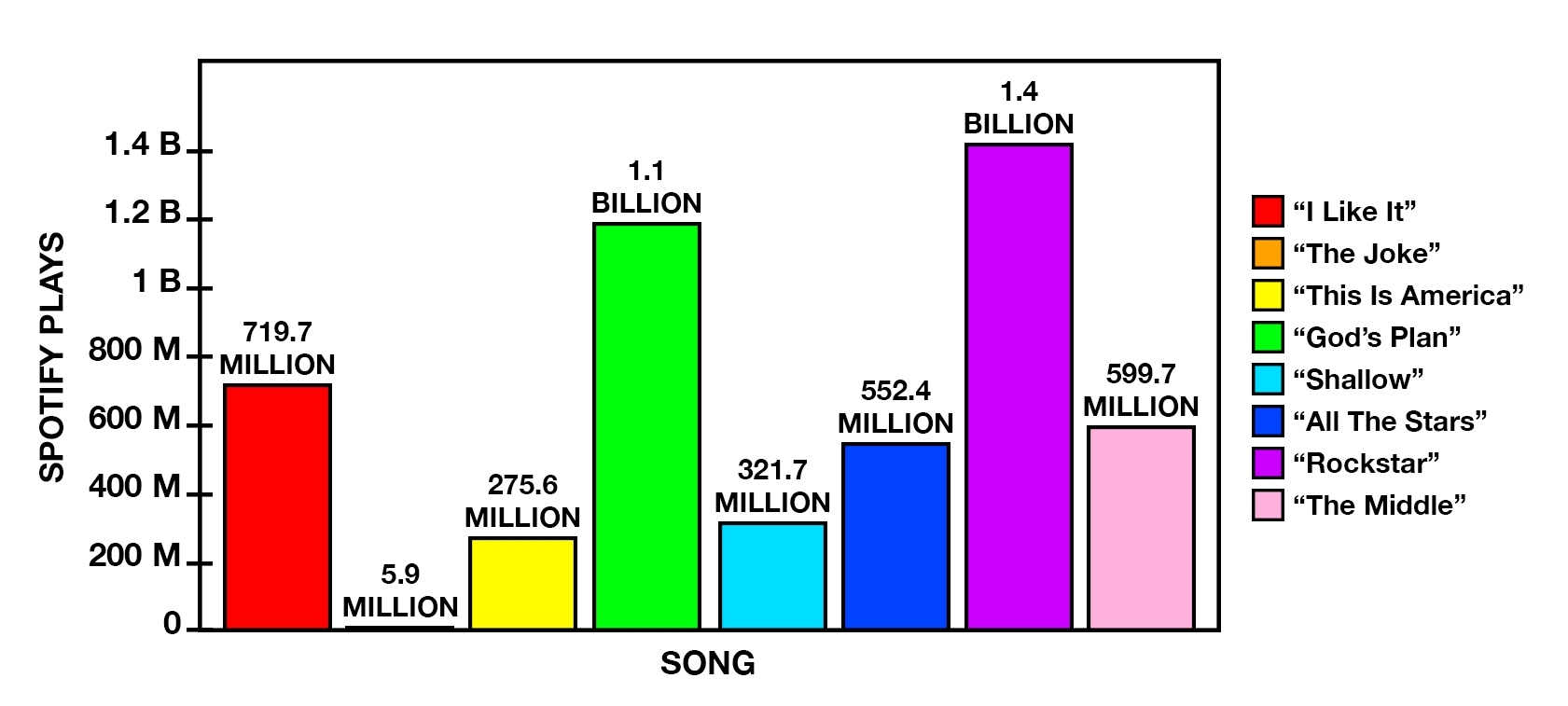
During December’s CBS This Morning episode, where the major category nominees for the 2019 Grammys were announced, Janelle Monae highlighted the broadcast with a memorable, heartfelt moment. She was part of the team recruited to read off the lists of nominees, and she apparently didn’t expect to hear that her album Dirty Computer was up for Album Of The Year honors. She got emotional when she did, and it was a touching live television scene.
It also wasn’t the only surprise.
Folk rock/Americana singer-songwriter Brandi Carlile had a supreme presence on the list of nominations, which was not at all something that was widely predicted. Only Kendrick Lamar and Drake received more nods this year (eight and seven, respectively) than she did (six of them), and hers weren’t all in genre-specific categories either: Her work is up for Album Of The Year, Song Of The Year, and Record Of The Year.
There were some nominees that weren’t exactly shoo-ins, but they did make sense after a bit of thought. H.E.R. and Ella Mai come to mind, but they both had popular streaming hits last year: H.E.R.’s “Best Part” has over 212 million Spotify plays as of February 1, while “Boo’d Up” racked up more than 146 million. They may not be superstars yet, but they’re at least part of the pop culture conversation. Aside from Kacey Musgraves, whose Golden Hour was a country crossover success story, Carlile was the only artist up for those three awards who is not directly related to pop or hip-hop, the most listened-to genres of today. Yes, By The Way, I Forgive You had an impressive No. 5 peak on the Billboard 200 chart, but it wasn’t exactly a popular record.
To quickly add foundation to that claim, let’s check how many Spotify streams the 2019 Record Of The Year nominees have (again, as of February 1):
- “This Is America” by Childish Gambino: 275.6 million
- “Shallow” by Lady Gaga and Bradley Cooper: 321.7 million
- “The Middle” by Zedd featuring Maren Morris and Grey: 599.7 million
- “I Like It” by Cardi B, Bad Bunny, and J Balvin: 719.7 million
- “All The Stars” by Kendrick Lamar and SZA: 552.4 million
- “God’s Plan” by Drake: 1.1 billion
- “Rockstar” by Post Malone featuring 21 Savage: 1.4 billion
And finally….
- “The Joke” by Brandi Carlile: 5.9 million
If I bothered to put that data into a bar graph, you might think that the column for Carlile’s “The Joke” was just a graphical glitch, a slight and accidental thickening of the bottom line. That song’s plays would account for just two percent of the spins on “This Is America,” or .4 percent of the listens “Rockstar” has.
Heck, let me make a quick bar graph:

With the Grammys, popularity is rewarded. Even the Recording Academy has somewhat admitted that the awards are a popularity contest, even going as far as to use that exact phrasing: In 2017, Bill Freimuth, the Academy’s senior vice president of awards, said that when it came to some categories, recognition “felt like more of a popularity contest.” The Academy has made a lot of changes to the Grammys since last year, so is this still true? To a significant degree, probably, yes. But Carlile’s nomination domination shows that sometimes, quality can get recognized, even if it isn’t widely known.
“The Joke” genuinely is great. It’s is soaring ballad featuring an arresting, powerhouse vocal performance from Carlile, and it was perhaps the most undeservedly underheard single of 2017. Lyrically, Carlile said the track is for “for people that feel under-represented, unloved, or illegal.” She belts on the string-laden chorus, “Let ’em laugh while they can / Let ’em spin, let ’em scatter in the wind / I have been to the movies, I’ve seen how it ends / And the joke’s on them.”
It is especially poignant during a time when music often feels cheap, and when more people than ever could use a kind, supporting hand on their shoulder. “The Joke” earned every nomination it got.
It’s a flooring song, different from most of its contemporaries. Dave Cobb, the esteemed Nashville-based producer who produced the song and the rest of By The Way, I Forgive You (along with Shooter Jennings), said of the album more broadly, “It’s one of those records that people who love classic records will appreciate — and people who love really great songwriting, and people who love great singers. It’s art, and this feels like this is a moment when art can break through to the mainstream.”
The album certainly found itself a part of a mainstream — it peaked in the fourth spot on the Adult Alternative Songs chart — but not the mainstream. It’s my understanding that the 18-to-24-year-old demographic doesn’t wait for midnight releases of new Americana singles so they can immediately start streaming them on repeat until their AirPods need recharging.
That prompts a worthwhile question, though: Are the Grammys about honoring popular music, or great music? Those qualities are not mutually exclusive, but you can have one without the other. The Recording Academy’s recognition of Carlile’s work appears to show an acute understanding of this, that the landscape goes beyond the one percent. Travis Scott believes that the Grammys better represented “the full spectrum of hip-hop” this year, and maybe that’s becoming increasingly true across the board.
Will Carlile win the trophy for any of the major prizes? The literal odds are not in her favor, but who knows. The Grammys have promised a lot of changes to this year’s awards, so maybe she’ll win one of them as a statement from the Recording Academy, or maybe her nominations were the statement. Regardless, in a rough-and-tumble sea of heavily-streamed hip-hop and pop, Carlile managed to stay afloat, and even stand out. In at least some small way, great music still matters, even if seeing Carlile’s name listed between Cardi B and Childish Gambino feels like a surprise.






